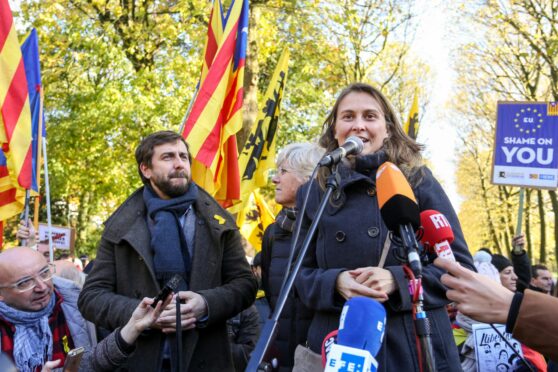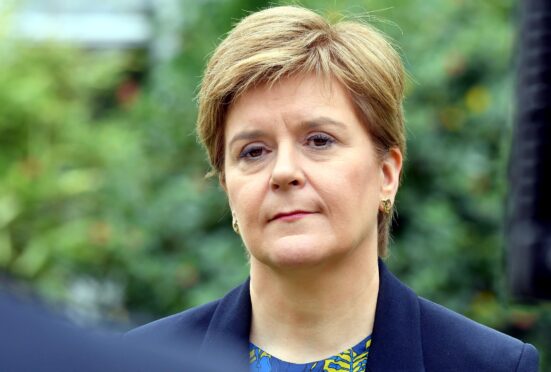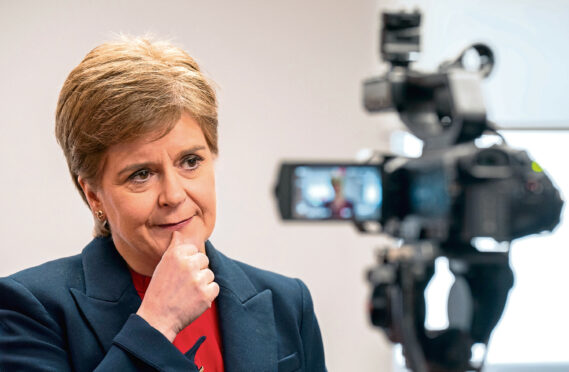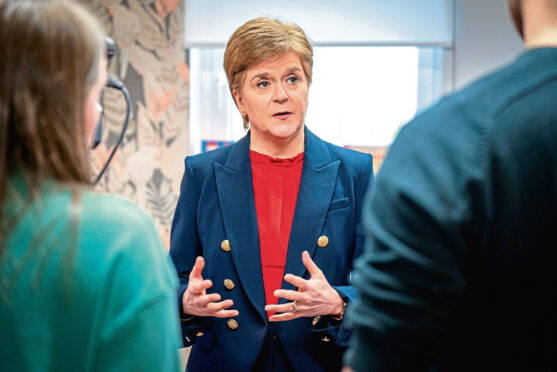
The Catalan foreign minister, who was involved in the 2017 bid to break from Spain, believes the SNP is right to pursue a democratic path to another referendum.
Meritxell Serret, the foreign minister in Catalonia’s regional government, said the pro-independence administration in Barcelona respected the strategy of the Scottish Government.
“After the decision of the British court, we want to express respect for the decisions that the Scottish government may take and to all those who are demanding a democratic resolution,” she told The Sunday Post in an interview at the Catalan parliament in Barcelona.
“There must be a democratic way to give an answer to democratic demands and no cannot be an answer.”
The Supreme Court said on Wednesday Scotland did not have the right to hold an independence poll without the approval of Westminster.
After the ruling, First Minister Nicola Sturgeon vowed to turn the next general election into a de facto vote on independence, adding the Supreme Court ruling had dispelled the suggestion that the UK was a voluntary union.
The Catalan minister stressed there were political and historical differences between Scotland and Spain. In 2014, Scotland held a referendum agreed with the UK government won by unionists. In contrast, Catalonia has never held a legal referendum which was agreed with the Spanish government.
Under the 1978 Spanish constitution, Spain’s 17 regions do not have the right to vote on independence unless there is a national referendum involving all Spain.
Despite this, Catalonia held illegal votes on splitting from Spain in 2014 and 2017. After the last vote, nine separatist leaders were jailed in 2019 for their part in the vote but were later pardoned.
Serret said support for the EU united both independence movements: “Our vision is that we have always said that we are part of the European Union so we would like to demand independence within the EU,” she said.
“We are both committed to achieving our demands through politics and …we and the SNP are very pro-European. From our perspective is that we want – to be part of the EU project.”
She added: “After Brexit it has been an aspect the Scottish people have realised that the European project was something that they wanted to be part of.”
In 2017, Serret was a minister in the Catalan government which staged a referendum declared illegal by the Spanish Constitutional Court.
Days after the referendum, the then Catalan government declared independence, prompting Spain’s worst political crisis in decades.
Serret went into self-imposed exile in Belgium, along with the former Catalan president Carles Puigdemont, until she returned to Spain in 2021. She faces charges of disobedience and is due to stand trial next year. Looking back on the events of five years ago, when police clashed with voters on the streets of Barcelona in violent scenes which sent shockwaves around the world, Serret said both sides – Catalonia and Spain – made mistakes.
“It’s OK to say we made many mistakes. We must be responsible for what we did. Both sides (should be) responsible for finding a democratic solution,” she said.
Support for independence in Catalonia has fallen in the past ten years from 57% backing breaking away from Spain in 2012 to 41% in July, according to polls for the Centre for Public Opinion for the Catalan government. Splits in the separatist movement, the cost of living crisis and the war in Ukraine have meant supporters have turned away from the cause.
The Catalan National Assembly (ANC), a separatist civil group which backs taking a hard line against the Spanish government, condemned the UK Supreme Court ruling.
Dolors Feliu, ANC president, said: “The court’s decision has denied democracy to the Scottish people, making it clear that Britain is not truly a voluntary union of nations.
“Scotland and Catalonia are striving to achieve independence peacefully and democratically in the face of states that do not even want to hear about it.”

Enjoy the convenience of having The Sunday Post delivered as a digital ePaper straight to your smartphone, tablet or computer.
Subscribe for only £5.49 a month and enjoy all the benefits of the printed paper as a digital replica.
Subscribe

